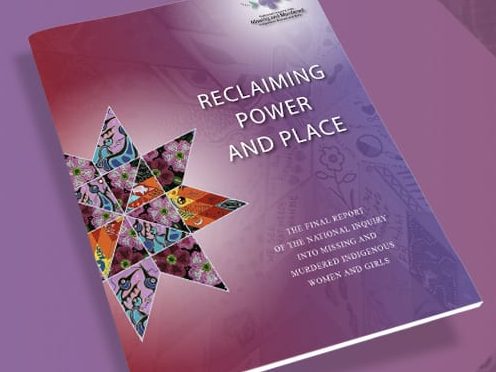In a case that has generated enormous news coverage in Manitoba the government of Manitoba and federal government have agreed to spend $20,000,000 each on a search of the landfill site, where it is suspected that the bodies of indigenous women were dumped by a non-indigenous man, Jeremy Skibicki. A total of $40,000,000 will be spent on a pointless search, at a time when indigenous and non-indigenous Manitobans are being denied basic health and other government services.
This search, which involves sifting painstakingly through a toxic landfill site is not necessary to the investigation or prosecution of the case. In fact, the search might actually hamper both. The search will also pose very real dangers to the police and forensic investigators conducting the search.
The question must then be asked: “Why is this unnecessary and costly search being undertaken?” And the equally more direct – and possibly offensive question: “Would such an enormous expenditure by both levels of government be made, and such a dangerous and pointless search be undertaken if Jeremy Skibnicki was indigenous?
Because, in the usual case where indigenous women are the victims, the perpetrator is himself indigenous. Jeremy Skibnicki, the alleged murder, is unusual in that he is not indigenous. According to Statistics Canada 86% of indigenous female homicide victims are murdered by indigenous men.
If Skibnicki, the alleged murderer, happened to be one of the 86% indigenous murderers, would this case have even received much public attention, much less $40,000,000 to be spent on a search that is not necessary for the investigation or prosecution of the case?
It is not the sheer awfulness of the facts in the Skibnicki case that has attracted such provincial and national attention. Not that the case is not awful on its facts. If Skibnicki did what he is alleged to have done, namely killed his victims and then unceremoniously dumped their bodies in a dump, that would certainly be a ghastly crime. But it wouldn’t be any more awful or ghastly than what an indigenous man, Ryan Howard Manoakeesick, is alleged to have done near Carman, Manitoba only last month or the serial murders Myles Sanderson committed in 2022.
The Mankoaseesick case is unbelievably awful, and includes the alleged burning to death of his own children, as well as the alleged murders of his wife and her niece. Myles Snderson slaughtered eleven men and women by stabbing them to death with knives. Both cases are at least as terrible on their facts as the facts in the Skibnicki case. They are also only two examples of horrendous violence inflicted on indigenous women that occur regularly, and go almost unnoticed – for the simple reason that the perpetrator is indigenous.
The fact is that the Skibnicki case gets enormous attention for one reason only – Skibnicki is not indigenous. If he was one of the usual cases where victim and perpetrator are both indigenous we would probably have never heard of him.
This is not to minimize in any way the very real problem of violence toward indigenous women. The fact is that indigenous women are far more likely to be victims of violence, rape and murder than non-indigenous women.
But, aside from notorious cases, such as the famous B.C. Robert Piston case, or this Skibnicki case, the perpetrators in the overwhelming number of cases of violence towards indigenous women are overwhelmingly indigenous men.
Exactly that subject – Indigenous women as victims of assault and murder – was what the National Inquiry Into Murdered and Missing Indigenous Women and Girls (MMIWG) was established to investigate into and report on in 2016.
This commission had the potential to seriously investigate and report on a matter of great national importance. Why were indigenous women at much greater risk of assault, rape and murder than their non-indigenous counterparts?
Unfortunately, the commission soon dissolved into force. It became a purely political vehicle specifically because it didn’t want to confront the painful reality that the main problem of violence towards indigenous women was caused by indigenous men. It was determined to find that someone else was at fault – the government, police, society – anyone but the indigenous men who were actually causing the problem.
That’s exactly what is happening now with the Skibnicki case in Winnipeg. If Skibnicki had been an indigenous man this case would have received only passing attention. It would have been news for a day, and then forgotten – just like the equally horrible Mankoaseeick and Sanderson cases. But because Skibnicki is non-indigenous the case is used as political ammunition for an indigenous agenda that is causing more and more division. Unfortunately, this is all about racial politics.
The irony is that all of this is supposedly being done to further “reconciliation”.
Brian Giesbrecht, retired judge, is a Senior Fellow at the Frontier Centre for Public Policy
Related Items:



